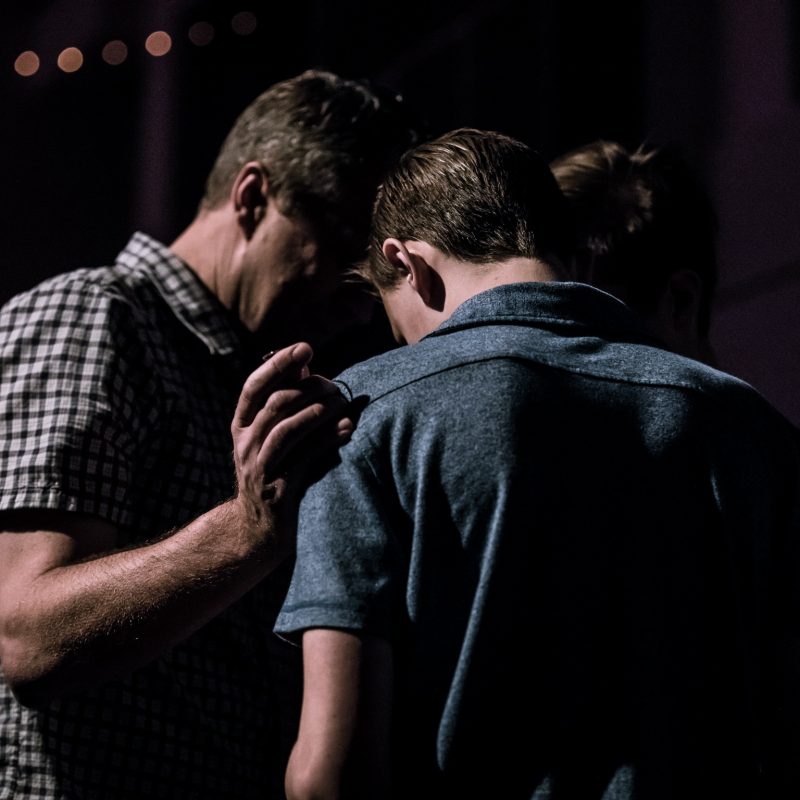
You Can Be Forever Free
Traditional recovery programs are often based on and employ the use of the Twelve Steps, which were created by the co-founder of Alcoholics Anonymous, Bill Wilson, in 1938. Millions of people have gone through the steps and have achieved long-term sobriety. For nearly ninety years, the 12 Steps have proven to be a solid method by which abstinence can be achieved.
The realization that the Twelve Steps can be utilized for various hurts, compulsions, and addictions has resulted in numerous programs being created, such as NarcoticsAnonymous, Al-Anon/Alateen, Cocaine Anonymous, Sexaholics Anonymous, Overeaters Anonymous, and a host of other groups. These programs have proven to be effective in helping countless individuals stay sober. However, with these programs, the only goal is to achieve a state of sobriety or abstaining from the behavior.
One of the concepts introduced in these meetings is the need for a “higher power” in order to recover from addiction. The problem with this terminology is that it does not necessarily refer to a deity or supreme being. The higher power is a “god of your own understanding,”and if one does not believe in a god, they can simply rely on the recovery group or an object as this “higher power.”

At Forever Free, we believe the one and only Higher Power is Jesus Christ. WithoutHim, true recovery and freedom cannot be achieved. The pathway to recovery, which leads to peace and serenity, is paved by and grounded in a healthy relationship with Jesus. The foundation of this program is the Bible. We also utilize the 12 Steps as a familiar and effective path to experiencing freedom. By trusting in Jesus Christ and working this simple program, you can be Forever Free!
There is a long-standing belief in traditional recovery that a person will always struggle with his or her addiction or compulsion: “Once an alcoholic/addict, always an alcoholic/addict.” In other words, a person will always be bound by the addictive or compulsive behavior and will never be free of it. They can only hope to avoid participating in the behavior and experiencing its consequences, a state known as“sobriety.

How is Forever Free similar to other recovery ministries?
When you walk into a Forever Free meeting, there will be some similarities to other recovery programs. First, there will be the fresh smell of coffee brewing. I’m not sure you can have a recovery program without coffee. There is probably some kind of ordinance that requires the brewing and consumption of this delectable beverage. Second, like some other Christ-centered programs, a meal or snacks are served. Food brings people together and creates an atmosphere for connection. Another similarity is the Twelve Steps. The Twelve Steps of recovery are a tried method of working through the underlying defects of character. Character defects are at the core of dysfunctional behaviors that often lead to an addiction or unhealthy compulsion. And lastly, the open share group format. Share groups are also a proven method of hearing and sharing experience, strength, and hope. There is something very powerful when you realize you are not alone in your struggle.
How is Forever Free different from other recovery ministries?
In secular recovery, one cannot argue the effectiveness and impact Alcoholics Anonymous, Narcotics Anonymous, Sexaholics Anonymous, Food Addicts Anonymous,Cocaine Anonymous, Codependents Anonymous, and so many others have had and will continue having on the lives of those who attend and work these programs.
There are some Christ-centered, biblical-based programs that ascribe to the use of theTwelve Steps because of the proven results. Other Christian programs follow a model in which the traditional Twelve Steps are considered unnecessary. The only steps needed, according to these programs, are placing one’s belief is placing one’s faith in Jesus Christ and then connecting with a healthy local church.
Are any of above-mentioned options wrong? Certainly not.Whatever works for each individual to get sober and maintain sobriety in his or her particular area of recovery is wonderful! Complete abstinence is certainly the goal (or at least one of them). We have witnessed dozens of men and women who have had success in every type of recovery program described above. There are rare instances of those who haven’t done any of these things to get and stay sober.
Because of their effectiveness, we do use the Twelve Steps. We consider them a path way to a closer, more intimate relationship with Jesus. They are the “vehicle” by which a deeper, more thorough method of self-examination is achieved. The Steps are an easy-to-follow discipleship tool for those new to recovery and new to faith. By working through these simple steps, individuals are able to expose and release the chains that kept them in bondage. God molds and transforms us as they work through this journey of self-discovery. Working through the Twelve Steps with a mentor is effective and transformative.
What differentiates Forever Free from secular programs as well as other Christ-centered programs is our approach to the recovery journey. While we use the Twelve Steps, we also encourage a deep reliance on the promises in scripture and discipleship, which ultimately leads to freedom–Forever Freedom!
